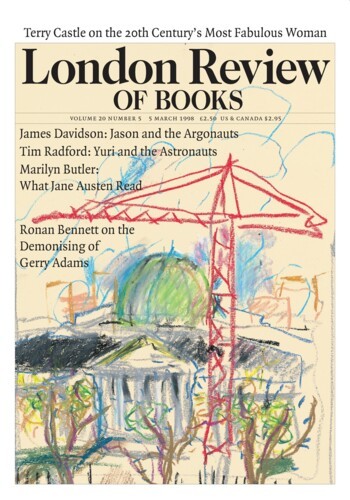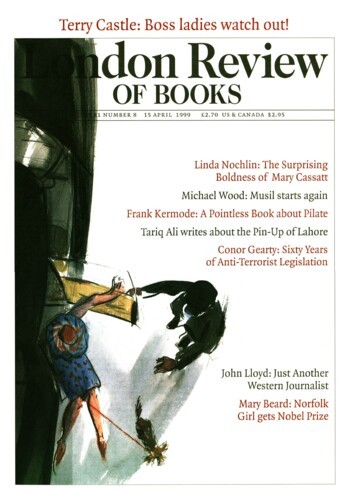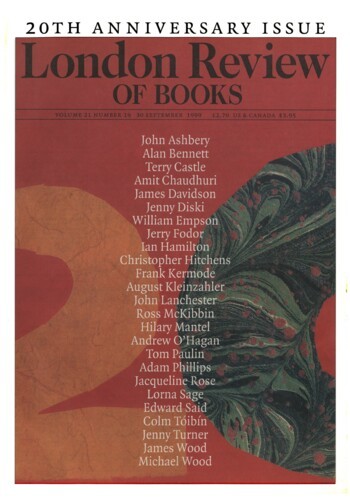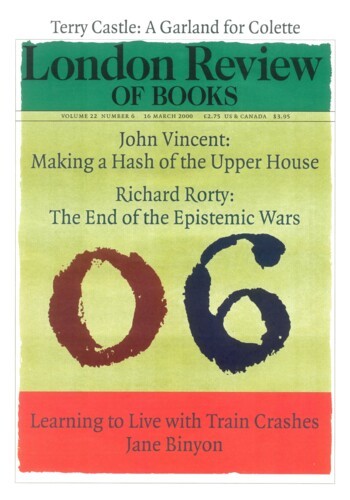If everybody had a Wadley: ‘Joe’ Carstairs, the ‘fastest woman on water’
Terry Castle, 5 March 1998
Changelings, centaurs, ogres and elves may no longer inhabit the earth, but occasionally we run into their descendants: people so monstrous, in-candescent, or freakishly themselves that only a quasi-supernatural description seems to do them justice. In the 20th century they come in all shapes and sizes: from the obvious ghouls and werewolves (Rasputin, Hitler, Idi Amin, Jeffrey Dahmer) to various mid-rank demigods and unicorn-people (T.E. Lawrence, Wittgenstein, Che Guevara, Greta Garbo, Edith Sitwell, JFK, Maria Callas, Howard Hughes, Andy Warhol, Glenn Gould, the late Princess of Wales) down to minor bog-sprites such as Eartha Kitt, Cher or Quentin Crisp. (Such lists are infinitely expandable.) What links each of these disparate individuals is a singularity so tangible as to border on the uncanny. We register each as a unique assemblage of moral and psychic tics: and each, in turn, seems to connect us to some alternative world. We are deeply impressed when one of them weakens and dies.




